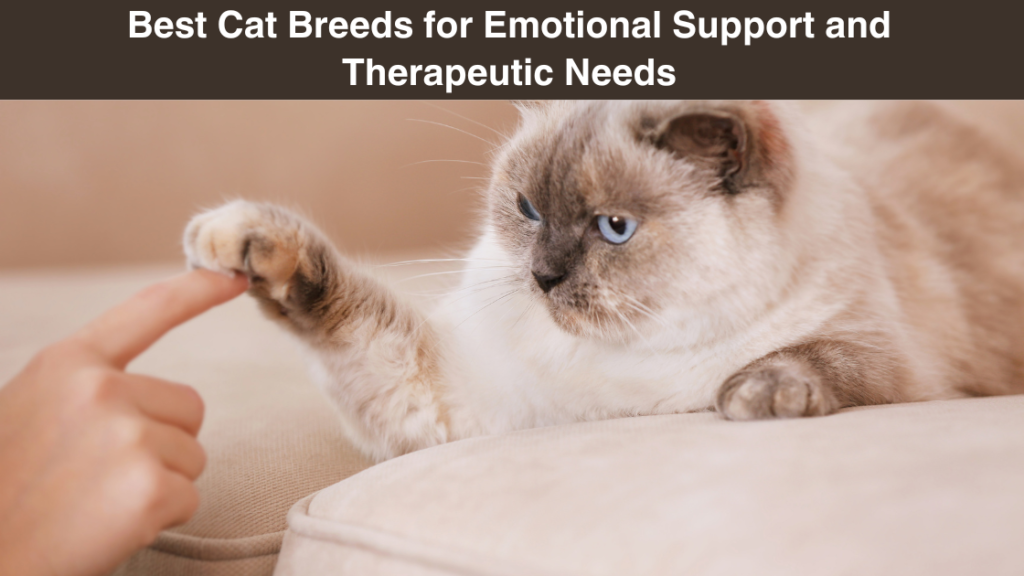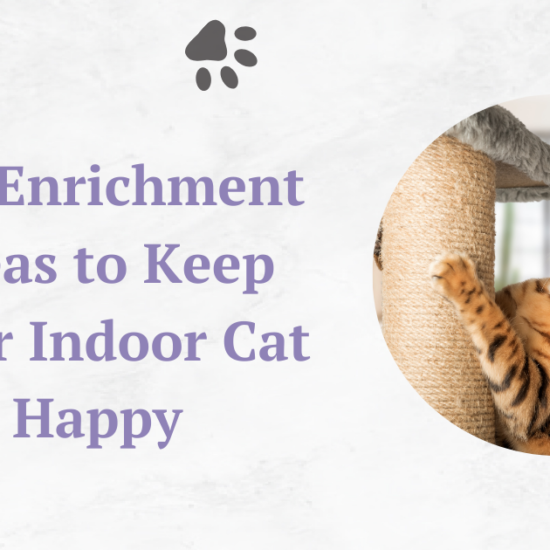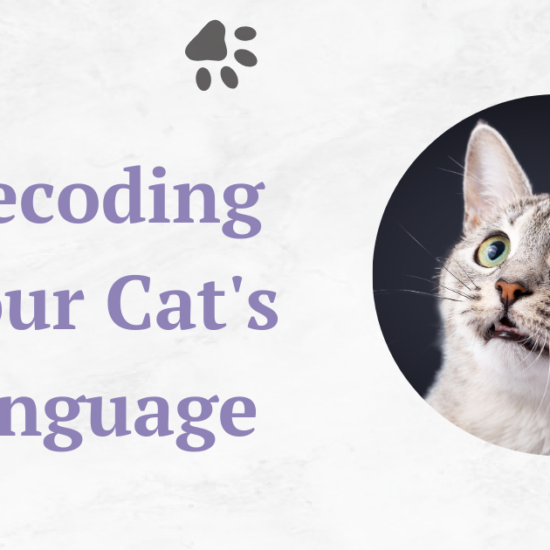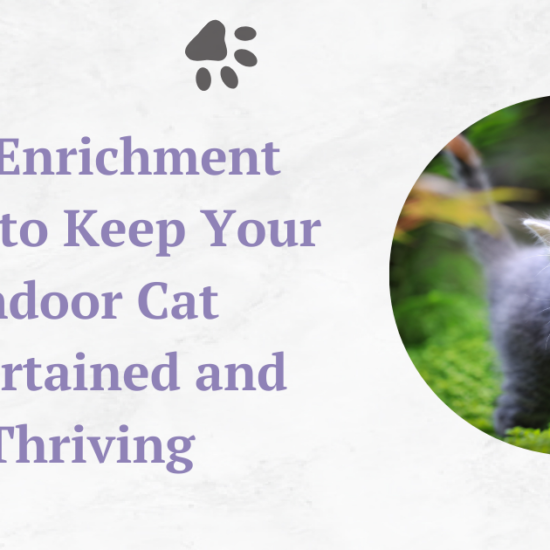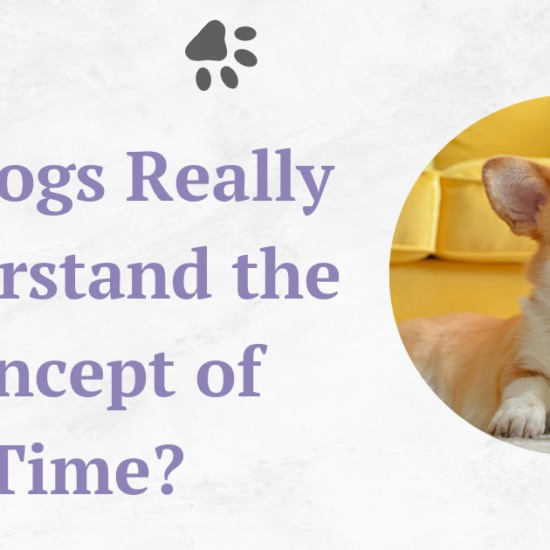Emotional support animals (ESAs) have gained widespread recognition for their ability to provide comfort, companionship, and therapeutic benefits to people suffering from a variety of emotional and mental health issues. While dogs are frequently the first animals that come to mind as ESAs, cats have also carved out a prominent role in this sector.
Table of Contents
Introduction
In this detailed article, we will analyze the world of cat breeds and their potential as therapy animals. We will look into the varied spectrum of cat breeds appropriate for giving emotional support and review the science behind the therapeutic benefits of these feline friends.
The Therapeutic Power of Animals
Before we get into specific cat breeds, it’s crucial to understand the therapeutic value of animals, including cats, and how they can positively improve mental well-being. Find the valuable insights needed to determine the significance of the cat as an emotional support animal.
- The Human Animal Bond

The link between humans and animals has existed for ages, stretching back to the domestication of animals for diverse purposes. Today, this link transcends beyond utility and friendship. Studies have demonstrated that interactions with animals, whether through pet ownership or therapy animals, can have tremendous benefits on human psyche and physiology.
- Benefits of Pet Ownership

Owning a pet, even a cat, can bring several physical, emotional, and psychological benefits. Some of the primary perks of having any pet or a cat as an emotional support animal are:
Reduced Stress: Interacting with pets helps lower stress hormone levels, resulting in reduced tension and anxiety.
Increased Social Interaction: Pets can function as social catalysts, encouraging individuals, especially those with social anxiety, to connect with others.
Emotional Support: The unconditional affection and company of pets can provide emotional support during stressful times.
Physical Activity: Taking care of a pet encourages physical activity and exercise, which can boost general well-being.
Routine and Structure: Pets frequently require a routine, which can assist people in developing a sense of structure and responsibility in their lives.
A Sense of Purpose: Caring for a pet offers people a sense of purpose and can help them deal with feelings of loneliness and emptiness.
Enhanced Mood: The presence of a pet can cause the production of “feel-good” hormones such as oxytocin, serotonin, and dopamine, resulting in an enhanced mood.
Why Choose Cats as Emotional Support Animals (ESAs)?

Emotional Support Animals (ESAs) are an important part of the rapidly growing area of animal-assisted therapy. These specially certified animals play an important role in offering emotional support and comfort to people suffering from mental illnesses. Mental health doctors frequently prescribe ESAs to help treat disorders such as anxiety, depression, post-traumatic stress disorder (PTSD), and others. In this perspective, it is critical to analyze why cats, rather than dogs, are becoming better acknowledged as effective therapy animals.
- Minimal Maintenance
Cats require minimal maintenance, which is one of their key advantages as ESAs. They are inherently more autonomous, unlike other canine breeds that require a lot of activity. They have a habit of diligently grooming themselves, ensuring that their coats are neat and tidy. Because of their self-sufficiency, they are appropriate for people of all energy levels, including those with physical restrictions or disabilities. Cats are an excellent choice for anyone looking for emotional support without the extra stress of daily strenuous activity.
- Peaceful Presence
Cats have a reputation for being soothing and peaceful. The delicate act of touching a cat, as well as the repetitive sound of its purring, can be extremely soothing for those suffering from worry and stress. This idea has even been supported by scientific study, which shows that the sound of a cat purring can have a demonstrable soothing impact on humans. The vibrations created by a cat’s purring are supposed to increase the creation of endorphins, which are natural mood lifters, amplifying the emotional support they provide even further.
- Affectionate and Loyal
Contrary to popular belief, several feline breeds are extremely affectionate and loyal to their owners. Cats have an unusual ability to create close ties with their human counterparts. They frequently express their affection by snuggling, purring, and following their owners around the house. During times of emotional turmoil, this steadfast connection can be a great source of comfort. An individual’s emotional connection with their cat ESA might develop feelings of security and stability.
- Small Space Friendly
In an increasingly urbanized world, many individuals live in apartments or small living areas, making it difficult to accommodate a larger pet. Cats, due to their small size and adaptability, are ideal for such surroundings. They don’t need a lot of outside room to exercise because they play in short bursts and can be litter-trained. This makes them suitable companions for people who live in cities where space is limited.
- Allergy Considerations
For people who are allergic to pet dander, cats may be a better option than dogs. Some cat breeds are hypoallergenic, which means that they create fewer allergens and are less prone to allergic reactions. Hypoallergenic cat breeds like the Siberian, Balinese, and Devon Rex can provide emotional support without increasing allergy symptoms, allowing allergy sufferers to enjoy the companionship of a feline ESA.
Best Breeds of Cats for Emotional Support
When choosing cats for emotional support, it is crucial to match their temperament and attributes with the individual’s emotional needs. Here are some cat breeds that are frequently well-suited for emotional support:
- Ragdoll

Ragdolls are well-known for their gentle and relaxed demeanor. They are quite affectionate and enjoy being hugged and cuddled, which may be extremely comforting to those in need of emotional assistance.
- Siamese

Siamese cats are extremely gregarious and loud, making them excellent companions for anyone seeking interaction and communication. Their loyalty and fun temperament might aid in the relief of loneliness and stress.
- Maine Coon

Maine Coons are one of the largest domesticated cat breeds and are sometimes referred to as “gentle giants.” They are noted for their amiable demeanor, intelligence, and flexibility, which makes them good therapy cats.
- Persian

Persian cats have beautiful silky fur and are peaceful and friendly. Because of their relaxing presence and low activity level, they are great for people looking for cats for emotional support and a calming effect in their lives.
- Scottish Fold

Scottish Folds are affable, versatile, and pleasant cats known for their characteristic folded ears. Their distinct look frequently arouses joy and curiosity, making them excellent emotional support animals.
- British Shorthair

British Shorthairs are regarded as being kind and calm. They are not unduly demanding of attention but appreciate companionship, making them excellent alternatives for people seeking cats for emotional support.
- Sphynx

Although the hairless Sphynx cat lacks fur, it possesses a warm and friendly demeanor. Their absence of fur also means fewer allergens for people who are allergic to pets.
- Burmese

Burmese cats are extremely gregarious and like socializing with their owners. Their friendly and lively temperament can provide emotional support and friendship.
- Bengal

Bengal cats are well-known for their eye-catching coat patterns and lively personalities. They are smart and like interactive play, which can be both stimulating and uplifting for their owners.
- Abyssinian

Abyssinians are energetic and inquisitive cats. Their playful demeanor can bring delight and distraction to those suffering from worry or despair.
Note: There might be affiliate links mentioned here. We may receive a commission if you purchase a product through an affiliate link. There is no additional charge for you. Please do your own research before making any online purchases.
Science Behind the Benefits of Cats for Emotional Support

Scientific research is increasingly supporting cats’ therapeutic benefits as emotional support animals, which go far beyond anecdotal evidence. This growing body of research sheds light on the beneficial effects of interacting with cats on emotional well-being. We look at major discoveries from studies in this field here:
- Stress Levels
Numerous studies have consistently shown that spending quality time with cats can dramatically reduce stress levels. Petting a cat, hearing their gentle purring, and feeling their warmth against your skin can cause the release of oxytocin, also known as the “love hormone” or “bonding hormone.” Oxytocin promotes feelings of relaxation and emotional well-being. It makes people feel more connected and less stressed, making it an effective anxiety and tension reliever.
- Blood Pressure
Cat interactions have been linked to lower blood pressure in humans. High blood pressure is associated with a number of cardiovascular disorders, including heart disease and stroke. The relaxing experience of petting a cat, combined with its calming presence, can help control blood pressure and lower the risk of hypertension. This long-term benefit of cats as emotional support animals for cardiovascular health emphasizes the potential importance of cats as emotional support animals in the management and prevention of heart-related disorders.
- Anxiety and Depression
Because of their friendly and sensitive nature, emotional support cats can provide important comfort and companionship to people suffering from anxiety and depression. Feeding, grooming, and providing affectionate attention to a cat can bring a sense of purpose and order to one’s everyday life. Furthermore, an individual’s emotional attachment to their feline companion can lead to an enhanced mood and a reduction in symptoms associated with anxiety and sadness. Having cats for emotional support provides continual emotional support through difficult times, allowing people to reclaim their feelings of hope and happiness.
- PTSD and Trauma
Cats can be very helpful for people suffering from post-traumatic stress disorder (PTSD) or who have experienced trauma. Cats’ gentle and nonjudgmental temperament fosters a secure and supportive environment in which people can process their emotions and traumatic experiences. The presence of a cat can provide a sense of security, making it simpler for people suffering from PTSD to control their symptoms. Furthermore, the emotional link created with a cat can provide a consistent source of comfort and companionship, providing relief to people through times of hardship and anxiety.
- Loneliness
Loneliness is a widespread problem in today’s society, with far-reaching consequences for one’s mental and emotional well-being. Emotional support cats play an important part in overcoming feelings of isolation and loneliness. Their friendship, unconditional affection, and everyday contact with their owners all contribute to relieving the emotional load of loneliness. The mere act of caring for and spending time with a cat can bring a profound sense of purpose and connection, boosting a person’s overall quality of life.
Importance of Proper Training and Certification

Proper training and certification are critical in the context of Emotional Support Animals (ESAs) to ensure that these animals can effectively provide the emotional support and companionship that people with mental health conditions require. While cats have proven to be effective ESAs, not all felines are naturally suited to this role. In this section, we discuss the importance of professional evaluation, training, legal considerations, and certification in the process of designating a cat as an ESA.
- Professional Evaluation
It is strongly advised to seek the advice of a mental health professional before designating a cat as an emotional support animal. These professionals can assess an individual’s emotional needs and recommend the most appropriate type of ESA. This assessment considers the individual’s mental health, lifestyle, and the type of emotional support required. It ensures that the cat chosen is appropriate for the individual’s needs, boosting the efficiency of the emotional support supplied.
- Training and Socialization
Proper training and socialization are crucial in preparing a cat to serve as an ESA. Training not only guarantees that the cat is well-behaved but also that it understands and responds to its owner’s emotional cues and requirements. Basic orders, proper behavior in public places, and even specialized activities linked to the individual’s mental health condition can all be covered in this training. Socialization is also crucial since it helps the cat adjust to new locations and situations, making it more comfortable in a variety of situations. A well-trained and socialized ESA cat is better suited to provide constant emotional support and lessen possible stress or anxiety for both the owner and the cat itself.
- Legal Considerations
Understanding the legal rights and duties associated with ESAs is crucial. Laws and regulations involving ESAs differ by country and location, which can lead to confusion and misconceptions. Being well-informed about local requirements means that individuals are aware of their rights to have an ESA in housing or during air travel, for example. It also helps kids understand the duties that come with ESA ownership, such as maintaining the cat’s behavior and complying with any municipal requirements for ESAs.
- Certification
While certification is not universally required for ESAs, some people decide to acquire certification from respected organizations to solidify the status of their cat as an official emotional support animal. Certification can provide further assurance to housing providers or airlines that the cat meets the necessary standards to serve as an ESA. However, it’s vital to understand that certification standards may differ and that not all certification providers are equal. To ensure the integrity of their cat’s ESA status, individuals should obtain certification from trustworthy organizations that conform to accepted standards.
FAQs
What exactly is an Emotional Support Animal?
An emotional support animal (ESA) is a specially designated animal, such as a cat, that provides emotional support and comfort to those facing various emotional and mental health issues. Mental health doctors frequently use them to help manage problems such as anxiety, sadness, or PTSD.
Do cats work well as Emotional Support Animals (ESAs)?
Yes, cats can be really effective ESAs. A cat as an emotional support animal provides companionship, affection, and therapeutic advantages that can be extremely beneficial to people suffering from emotional and mental health issues.
What are the advantages of using a cat as an emotional support animal?
Cats can help to relieve stress, lower blood pressure, alleviate anxiety and depression, provide emotional support, promote physical exercise, develop routine and structure, combat loneliness, and improve mood.
Why are cats acknowledged as therapy animals, despite the fact that dogs are more common?
Cats are known as therapy animals because of their low maintenance, calming presence, friendly nature, adaptability for tiny areas, and respect for individuals with allergies, making them a good choice for anyone needing emotional support.
Which cat breeds are best for emotional support?
Ragdoll, Siamese, Maine Coon, Persian, Scottish Fold, British Shorthair, Sphynx, Burmese, Bengal, and Abyssinian are some cat breeds that are frequently well-suited for offering emotional support. These breeds have unique traits that can meet a variety of emotional demands.
How may encounters with cats help to alleviate tension and anxiety?
Petting and hearing cats purr can cause the release of oxytocin, a hormone that promotes relaxation and decreases stress. Cats’ calming presence can also help manage blood pressure.
Can cats aid those suffering from PTSD or trauma?
Yes, emotional support cats can help people with PTSD or those who have been through tragedy. Their friendly and non-judgmental demeanor can foster a secure and supportive setting in which people can work through their feelings.
Are there any prerequisites for recognizing a cat as an ESA?
Yes, a professional evaluation by a mental health expert is required to establish whether an ESA is appropriate for an individual. Proper cat training and socialization, as well as knowing the legal implications and, if desired, gaining certification, are all critical tasks.
Is it necessary to certify Emotional Support Cats (ESCs)?
Although certification is not required for all ESAs, some people opt to get it from respected organizations to guarantee their cat is recognized as an official emotional support animal.
How can I be certain that my cat is an appropriate ESA for me?
Consult with a mental health expert, give adequate training and socialization, understand legal requirements, and explore certification if needed to guarantee your cat is a suitable ESA. This thorough strategy guarantees that your cat’s role as an ESA in helping your emotional well-being is effective.
Conclusion
Cats, with their different breeds and distinct personalities, have proven to be effective emotional support partners. Their calming presence, affectionate attitude, and therapeutic effects make them ideal for providing emotional support to people struggling with a variety of mental and emotional issues.
It is critical to evaluate both the individual’s emotional requirements and the cat’s disposition when choosing a cat as an emotional support animal. Furthermore, proper training and certification can improve the cat’s usefulness as an ESA.
The significance of cats as therapy animals is anticipated to rise as society recognizes the importance of mental health and emotional well-being. These feline companions have the capacity to provide comfort, friendship, and healing to individuals in need, making them vital members of the emotional support group.


